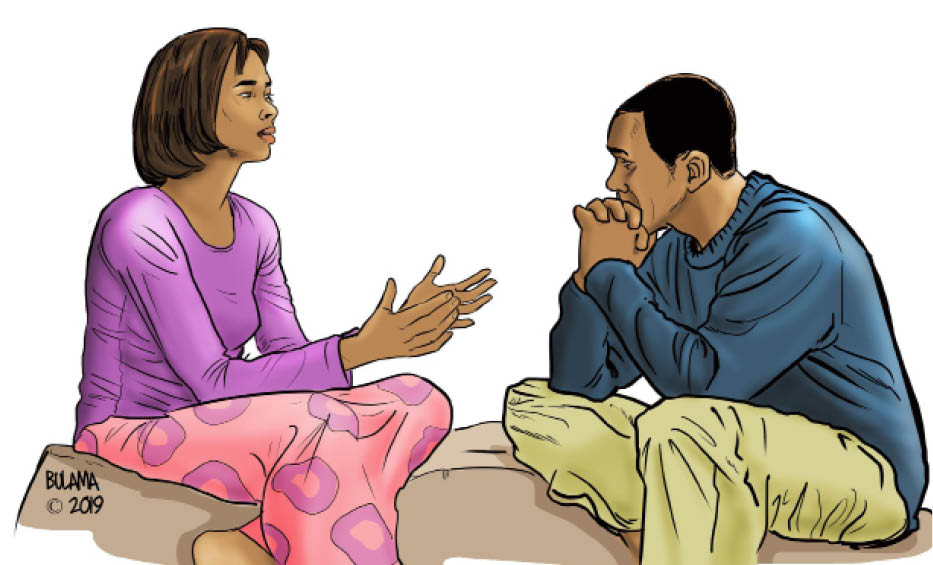How best to deliver bad news
‘Life is not a bed of roses’ is a common saying and this implies that as human we are bound to encounter unpleasant situations which can give rise to bad news. Bad news could range from death, loss of job, relationship break-up, to sickness, failed exams, even misplaced items and so on. When delivering bad […]

How best to deliver bad news
‘Life is not a bed of roses’ is a common saying and this implies that as human we are bound to encounter unpleasant situations which can give rise to bad news.
Bad news could range from death, loss of job, relationship break-up, to sickness, failed exams, even misplaced items and so on.
When delivering bad news, there is always a danger of the receiver transferring misplaced emotions and anger at the messenger.
LifeXtra sought people’s opinion on a two-pronged question which are: How would you prefer to deliver bad news and how would you rather have bad news delivered to you?
Fauziyya Ahmad, a school teacher in Gwagwalada, told LifeXtra that she would want a pep talk to prepare her for the news only if it is positive.
She said “If it is good news, I would love the pep talk but please if it is bad news, it will destabilize me a bit, and I don’t need the distraction.”
Fauziyya, who experienced loss not too long ago, said the news was broken to her after a day’s suspense and she almost had a heart attack from anxiety.
“I was called to come home that my attention was needed. Nobody told me anything and then on their WhatsApp status, they were writing Innalillahi wa inna ilahir rajiun. It was so frustrating that they were not saying anything to me. I was scared, anxious and panicking until I got home the next day to learn my uncle died. I don’t need the drama surrounding the news. I know what I went through with all sorts of scary thought running in my head. It can make one go crazy so I need them to shoot the message directly.”
She however stated that she wouldn’t blame the messenger.
Isaac Muru, a civil servant, on the other hand is indifferent about it. As long as the message is relayed in the end, that is what matters.
“I think giving pep talks before the bad news should help calm some people down. For example, doctors will not directly tell you that the patient you brought in is dead. They will first tell you how they have tried their best and how there was nothing else they could do, and so on. They only try to calm your nerves and prepare your mind before telling you the bad news. But even before they finally say it, you already know where they are headed,” he said.
Shamsu Iliya, a painter, also said he is indifferent about getting a pep talk or not before receiving bad news.
He also said when delivering bad news, he will first observe the person’s mood before deciding to give a pep talk or not.
But Kubura Dahiru, a housewife based in Kaduna, feels that in some situations, giving pep talks before the bad news is not necessary.
“Give them the information so they can begin to process it and move on with their lives,” she said.
“If I were to give bad news, I will go directly to the point because if it were me I wouldn’t want a long story before the news,” she said.
Andy Molinsky, writing for a US behavioral-themed magazine, Psychology Today, gave a five-point tip to delivering bad news.
Molinsky said he came up with the tips for the article “How to Deliver Bad News Like a Pro” after interviewing over 40 managers.
He said prepare for the conversation, as you never want to “wing it” when delivering bad news. Secondly, remind yourself why it’s necessary in the first place. “No one likes to deliver bad news. But it will be easier to do if you feel justified in delivering it.”
Thirdly he said “Be direct, but also as compassionate as you can be,” as “You don’t want to sugarcoat bad news, but you also don’t need to be cold or robotic in delivering it.”
Furthermore, “Think carefully about location” so as deliver the news in a place that “minimizes embarrassment, and allows the other person to maintain their dignity.”
Finally, Molinsky said “Don’t bargain” so as not to “allow the conversation to become a negotiation when it really can’t be one.”
